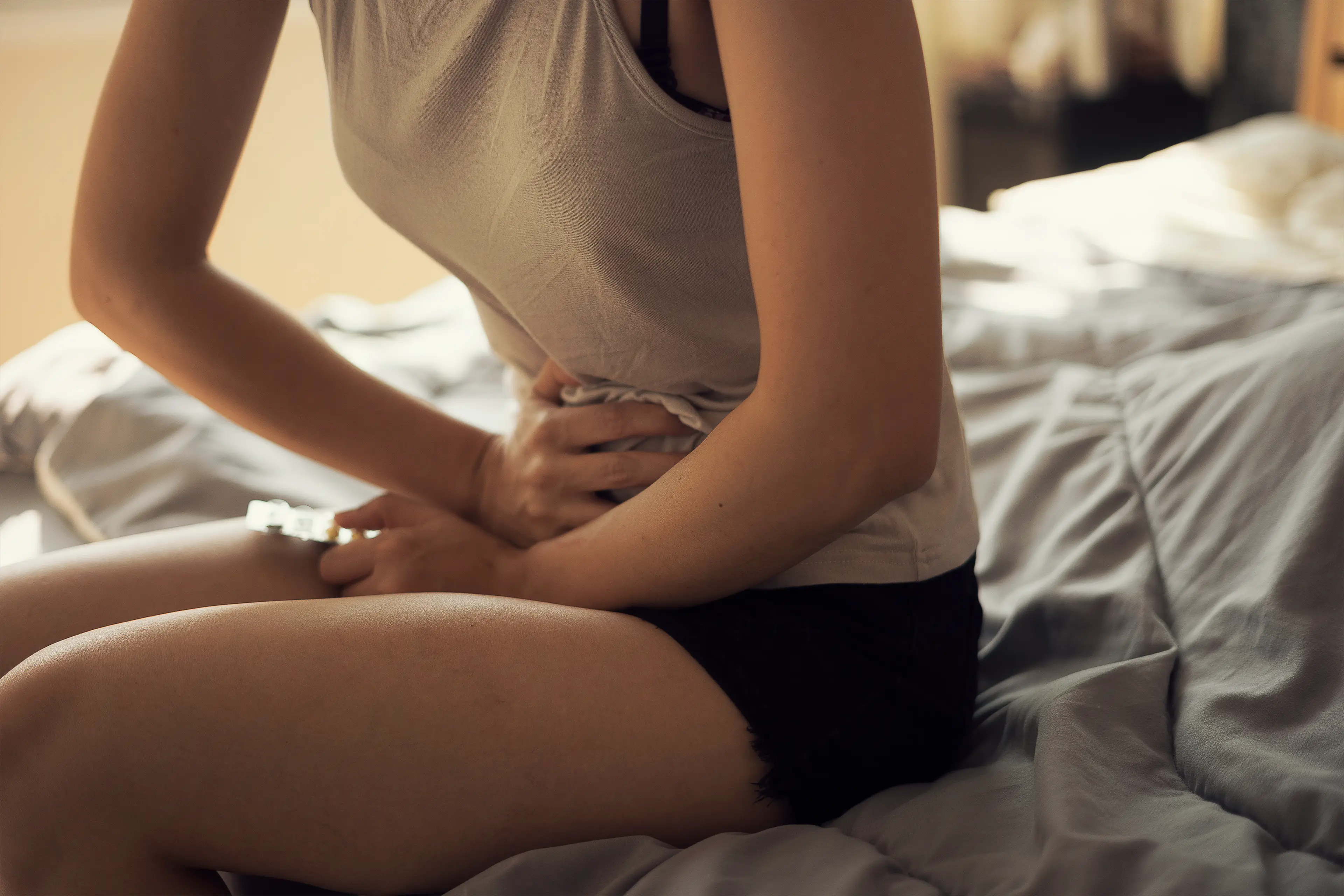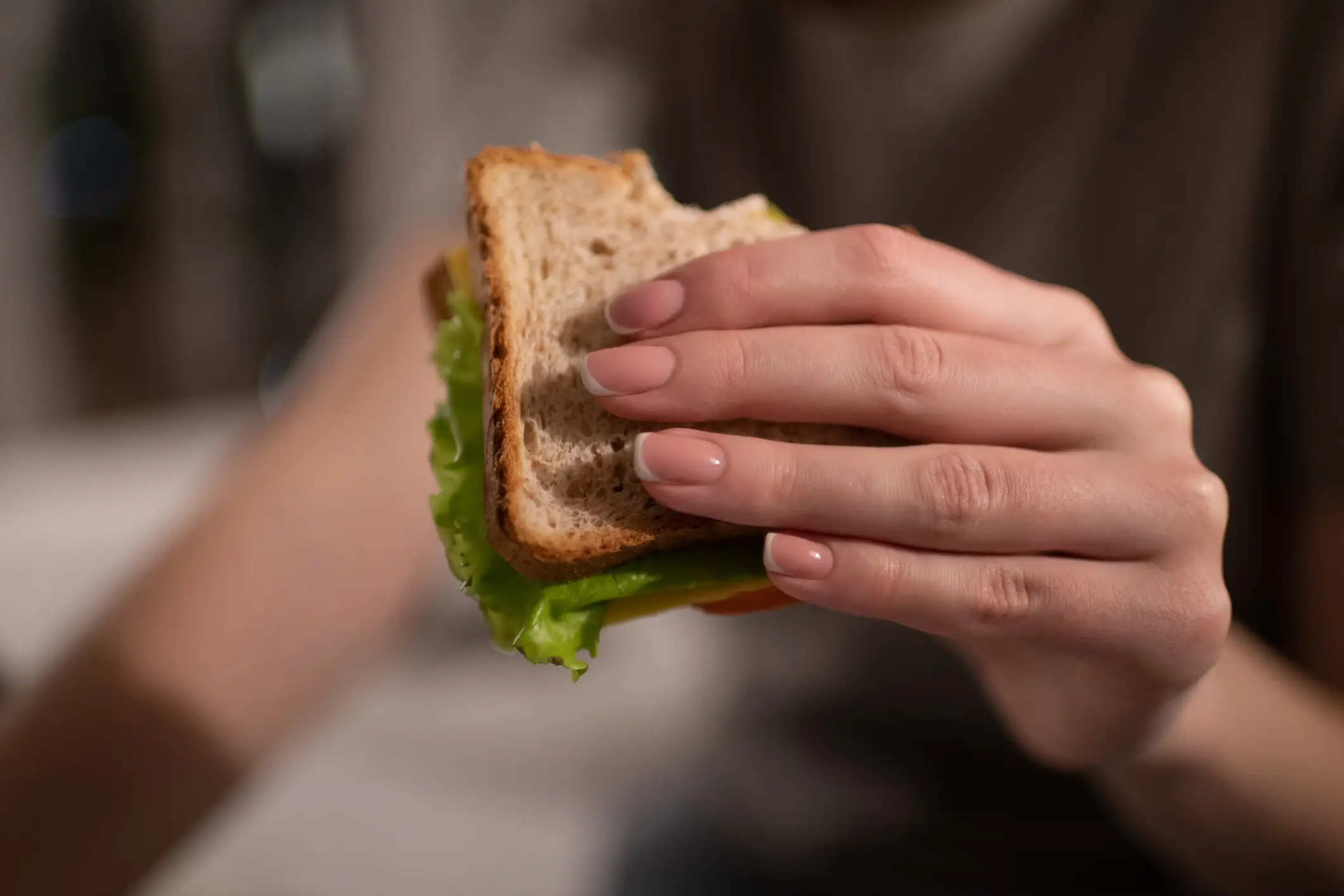
For some of the lucky ones, you can eat all you want without any issues at all.
Yep, a whole bunch of people can freely devour their favourite dishes feeling nothing but satisfied after licking the plate clean.
Others however, who are far less fortunate, are sadly met with a pretty difficult to ignore feeling of sickness right after eating.
So, to help shine a line on the seemingly age-old mystery, experts from Dr Brian Lum have shared the five major reasons and exactly when you need to seek help.
Advert

Food sensitivities and intolerances
Up first on the list of reasons as to why you may feel slightly peaky after eating is food sensitivities and intolerances.
Symptoms like nausea, a racing heartbeat, and fatigue after eating are really common when it comes to food intolerances.
Low-grade inflammation caused by such food intolerances can also lead to symptoms like brain fog, weight gain, panic attacks, anxiety, depression, mood swings, blood sugar regulation issues and migraines.
The experts suggest that, if you suspect you have a food tolerance, getting it tested to 'investigate underlying factors' remove the suspected foods from your diet while working on 'healing the digestive tract'.

Infection
Another reason you may be feeling ropey after eating is potentially either a parasitic, fungal, bacterial or viral infection.
According to the experts, one of the most common types of infections that produce symptoms after eating is small intestinal bacterial overgrowth (SIBO).
The primary symptoms of SIBO include abdominal bloating and diarrhea.
While it's gross and unsettling to think about, it's important to get tested if you suspect an infection as it can determine the 'strain and location' of the infection, which will help doctors figure out the best treatment to get you back to normal in no time.

Liver and/or gallbladder problem
Third on the list is a liver problem or a gallbladder problem - or both.
A common issue that may cause feelings of sickness after eating is when your liver isn't producing enough bile - which contains acid to break down your food - to allow for proper digestion.
"Low bile production is one of the primary reasons why people have recurrent SIBO," the experts note.
One common symptom of gallbladder dysfunction is pain near the shoulder blades as well as morning nausea.
Testing your stool and blood can help doctors examine what's happening with your bile acids.

Low stomach acid
Now, when there's not enough stomach acid to digest food, the body cannot absorb key vitamins and nutrients.
Having low stomach acid can be caused by a range of things including; poor diet, not eating during an 'optimal window' during the day and chronic stress.
The experts cite chronic stress as 'the most common factor' they see in their practice that 'compromises the production of quality stomach acid'.
Symptoms of low stomach acid are as follows; nausea when taking pills, brittle nails, acid reflux, bloating, stomach pain and cramping and nausea after eating.

Intestinal sensitivity syndrome
And last on the list is intestinal sensitivity syndrome.
"Inflammation and nerve sensitivity in the lining of the intestines can cause a wide range of symptoms every time you eat," the experts say.
High-fibre foods like fruits, whole grains and veggies can sometimes make symptoms worse - something can be super baffling for patients who have
healthy diets but have severe digestive symptoms.
The experts explain that one of the many potential causes behind intestinal sensitivity is a fungal or bacterial infection.
Topics: Life, Health, Advice, Food and Drink, Mental Health